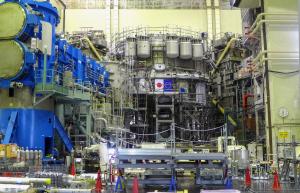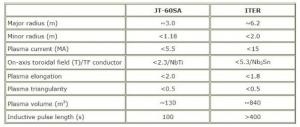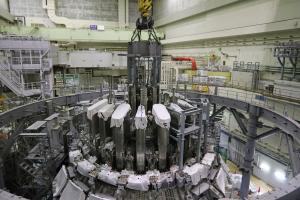In autumn 2020, five years before ITER is scheduled to begin operating, an upgraded tokamak experiment in Japan will celebrate its First Plasma. Like ITER, it is a magnetic confinement fusion device, with a tokamak about half the size of ITER's.
JT-60SA (for "Super Advanced") is part of the
Broader Approach¹, a joint program of fusion research and development agreed and co-financed by the European Atomic Energy Community (Euratom) and the government of Japan (represented by its Ministry of Education, Culture, Sports, Science and Technology, MEXT).
The upgraded device replaces a tokamak experiment that operated at the Naka Fusion Institute from 1985 to 2008 (first as JT-60, then as JT-60U), and re-uses the site buildings, the neutral beam heating apparatus, and some power supplies and auxiliaries. All core machine components—including vacuum vessel, superconducting magnets, and surrounding cryostat—were re-designed and procured by the implementing teams, the National Institutes for Quantum and Radiological Science and Technology (QST, Japan) and European Domestic Agency for ITER, Fusion for Energy.
A satellite in support of ITER




